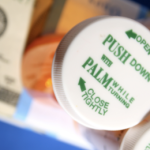
Checklist: Medicare Prescription Drug Exception Request
At some point, you may find that a prescription drug you need is not part of your Medicare Part D drug plan’s formulary (list of covered drugs.) You may also find that a prescription drug you need is part of your plan’s formulary, but that it has coverage restrictions (e.g., specific quantity limits, prior authorization, or step therapy requirements.) If you find yourself in this situation, this checklist includes steps to take to ask your plan to make an exception, and cover the drug you need.
☐ Understand your options.
- In addition to making an exception request, you may have other options:
- Talk to your health care provider about whether there is another drug on your plan’s formulary that may be effective for treating your condition.
- If you were already taking the drug you need, but your plan no longer covers it, you can request a “transition fill.” This is a request for a one-time, (at least) 30-day supply of a drug you were previously taking. You can ask for a transition fill during the first 90-days you are enrolled in a new drug plan, or during a new plan year of a drug plan you had last year, but that no longer covers your drug.
- Check if you have access to an enrollment period to change your drug plan (e.g., open enrollment or a special enrollment period).
☐ Understand what an “exception” is & who may request one.
- An exception is a type of coverage decision made by your drug plan. There are two types:
- Tier exceptions: used to ask that a drug on a higher tier of a formulary be covered at the cost of a drug on a lower tier of that formulary
- Formulary exceptions: used to ask that a drug not on your plan’s formulary be covered as if it is on your plan’s formulary, OR used to ask that a coverage restriction be waived
- You, your health care provider who prescribed the drug, or your representative can request an exception.
☐ Ask your health care provider for a “supporting statement.”
- The health care provider who prescribed your drug must submit a supporting statement to your drug plan. That statement needs to say why the drug is medically necessary for you.
- For a tier exception, the supporting statement must explain why the lower-tier drug wouldn’t be as effective as the higher-tier drug you need, that the lower-tier drug would cause adverse effects (e.g., you would have an allergic reaction), or both.
- For a formulary exception, the supporting statement must explain why the non-formulary drug you need is necessary to treat your condition.
- If the drug is not on the plan’s formulary, the statement must explain that none of the plan’s covered drugs (regardless of which tiers they are on) would be as effective for you, or would cause adverse effects, or both.
- If you’re making the request because of quantity limits, your supporting statement must show the current quantity restriction has been, or is likely to be, less effective, and/or will cause adverse effects.
- If you’re making the request because of step therapy requirements, your supporting statement must show the alternative drugs required with step therapy have been or are likely to be less effective, and/or will cause adverse effects.
☐ Submit your supporting statement to your drug plan.
- Your health care provider can submit the supporting statement verbally or in writing. If they submit the statement verbally, the plan may require that they follow-up in writing.
- You or your health care provider can make an expedited request (to get a faster decision) if using the standard timeframe will jeopardize your life, your health, or your ability to regain maximum function.
☐ Understand the time frame that your drug plan has to respond & how long your exception will last.
- Once your drug plan receives your supporting statement, it must provide written notice of its decision within 72 hours. If you made an expedited request, it must provide written notice of its decision within 24 hours.
- If your request is granted, your plan can’t require you to make another request for a refill or new prescription for the same drug for the rest of your plan year so long as:
- you stay in the same plan;
- your health care provider continues to prescribe the drug; and
- the drug continues to be safe for treating your condition.
☐ Appeal if your request is denied.
- If your exception request is denied, you can appeal (ask your plan to reconsider its decision).
- For details about the appeals process, visit TriageCancer.org/Cancer-Finances-Medicare & select “Information about what to do if Medicare says no.”
For more information about Medicare, visit TriageHealth.org/Medicare.
Learn More
For more information on navigating finances, visit TriageCancer.org/Financial & our CancerFinances.org.
Sharing Our Quick Guides
We're glad you found this resource helpful! Please feel free to share this resource with your communities or to post a link on your organization's website. If you are a health care professional, we provide free, bulk copies of many of our resources. To make a request, visit TriageHealth.org/
This content may not be reproduced, in whole or in part, without the express permission of Triage Cancer. Please email us at TriageHealth@TriageCancer.org to request permission.
Last reviewed for updates: 02/2025
Disclaimer: This handout is intended to provide general information on the topics presented. It is provided with the understanding that Triage Cancer is not engaged in rendering any legal, medical, or professional services by its publication or distribution. Although this content was reviewed by a professional, it should not be used as a substitute for professional services. © Triage Cancer 2023
